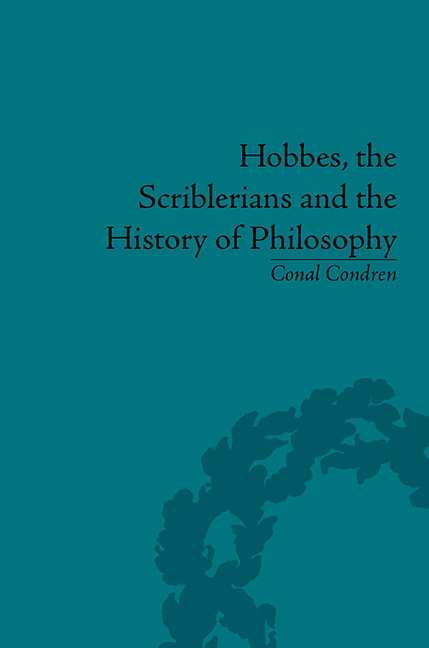Book contents
- Frontmatter
- CONTENTS
- Dedication
- Preface
- Epigraph
- Introduction
- Part I
- Part II
- 3 The Seriousness of the Absurd: The Scriblerian Philosophic Persona
- 4 Identity, Materiality and the Language of Philosophical Absurdity
- 5 Hobbes and the Scriblerians
- Afterword: The History of Early Modern Philosophy: Method, Speech Act and Persona
- Notes
- Works Cited
- Index
5 - Hobbes and the Scriblerians
from Part II
- Frontmatter
- CONTENTS
- Dedication
- Preface
- Epigraph
- Introduction
- Part I
- Part II
- 3 The Seriousness of the Absurd: The Scriblerian Philosophic Persona
- 4 Identity, Materiality and the Language of Philosophical Absurdity
- 5 Hobbes and the Scriblerians
- Afterword: The History of Early Modern Philosophy: Method, Speech Act and Persona
- Notes
- Works Cited
- Index
Summary
The Ghost in the Texts
If Hobbes had not lived, the Scriblerians would have needed to invent him. Their personifications of errant philosophy are partial continuations of the satire to which Hobbes had been subjected, and that had already shaped an image of him very much to Scriblerian needs. On the cusp of the eighteenth century William King featured the philosopher in conversation with the poet Bays in the fourth of his Lucianic Dialogues of the Dead. Hobbes describes himself as a parcel of atoms ‘jumbled’ by chance, but a very considerable animal, ‘the greatest Philosopher that ever was’. Bays states that he knows who he is by his atoms and vanity. Hobbes crossly abuses Bays as a trifler, admits that he is no poet and reaffirms his philosophic infallibility. A pity about the poetry, replies the poet, for if his Godless theories had been presented as verse, poetic licence might have excused them. Hobbes blusteringly insists that he has demonstrated all he has argued, that he has not denied God but only his relevance to understanding the world; Bays asserts that in denying dependence on God, the demonstrations are worthless. Hobbes has fraudulently set himself up for a wit with false ware. The gravity of his face and beard will get him hooted at, for he has simply stolen from philosophers like Lucretius whom he decries as asses. It is superficial and sketchy to be sure, but authentically Lucianic in its satirically pointed doctrinal minimalism; it skims, not always unfairly, over what Hobbes had actually claimed and deftly abridges the alleged implications issuing from the philosopher's gargantuan effrontery. Far more crudely and on the eve of the Scriblerian experiment, Benjamin Hoadly was attacked through a Lucianic letter by the ghost of Hobbes written from his dwellings in Hell. Hoadly is damned by association with his correspondent, the co-conspirator from Malmesbury and his roistering friends, (Loyola, Guy Fawkes, Hugh Peters, Cromwell and Algernon Sidney) all busy in the promotion of anarchy, rebellion and irreligion.
- Type
- Chapter
- Information
- Hobbes, the Scriblerians and the History of Philosophy , pp. 125 - 138Publisher: Pickering & ChattoFirst published in: 2014



